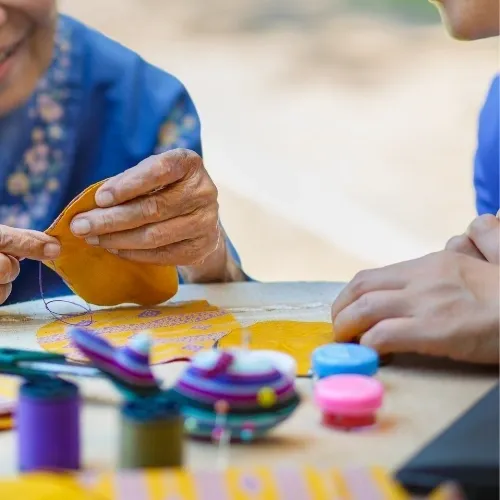The early stages of Alzheimer’s present unique challenges for both individuals facing the diagnosis and their families. Recognizing the initial signs, such as mild memory loss and difficulty with familiar tasks, allows for timely intervention and the implementation of supportive strategies.
- Open Communication: Establishing open communication within the family is crucial. Encourage discussions about the diagnosis, emotions, and expectations. Understanding that Alzheimer’s is a shared journey helps foster a united front in providing care and support.
- Educate Yourself: As a caregiver, educating yourself about Alzheimer’s is empowering. Understanding the progression of the disease, available resources, and effective caregiving techniques equips you to navigate the challenges that may arise.
- Create a Safe Environment: Modify the home environment to enhance safety and reduce potential hazards. This includes removing tripping hazards, installing handrails, and ensuring a clear and organized living space that promotes independence.
- Establish Routines: Routine becomes a stabilizing force in the face of Alzheimer’s. Establishing daily schedules helps individuals feel more secure and capable, minimizing confusion and anxiety associated with memory loss.
- Encourage Mental Stimulation: Engage individuals in activities that stimulate cognitive function. Puzzles, memory games, and hobbies can provide mental stimulation and contribute to maintaining cognitive abilities in the early stages.
- Seek Professional Guidance: Consulting healthcare professionals and Alzheimer’s support networks is essential. These resources offer guidance on managing symptoms, accessing appropriate care, and connecting with others experiencing similar challenges.
- Foster Emotional Well-being: Prioritize emotional well-being for both the individual with Alzheimer’s and caregivers. Encourage activities that bring joy, such as listening to music, enjoying nature, or participating in art therapy. Emotional well-being is a cornerstone of a holistic care approach.
- Plan for the Future: While it may be challenging, early planning for the future is essential. Discuss legal and financial matters, including advanced care directives, to ensure that the individual’s wishes are respected as the disease progresses. In the early stages of Alzheimer’s, caregivers play a pivotal role in creating a supportive and understanding environment. By implementing these strategies, families can navigate the challenges with compassion, maintain the individual’s dignity, and enhance the overall quality of life for everyone involved.






